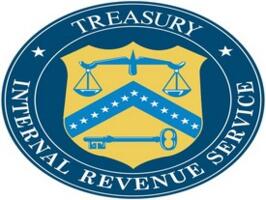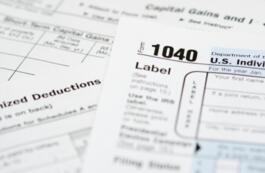57% Want IRS Offenders Jailed or Fired
Most voters believe the Internal Revenue Service’s targeting of Tea Party and other conservative groups was politically motivated and think most of those involved should be severely punished.
Just 16% of Likely U.S. Voters believe the IRS investigations of these groups were a coincidence, according to the latest Rasmussen Reports national telephone survey. Fifty-seven percent (57%) think the investigations were politically motivated. Twenty-seven percent (27%) are not sure. (To see survey question wording, click here.)
Fifty-five percent (55%) think it is at least somewhat likely that President Obama or his top aides were aware that Tea Party and other conservative groups were targeted by the IRS. Thirty-four percent (34%) consider that unlikely. This includes 36% who believe it is Very Likely the president or his top aides knew of the investigations and 13% who feel it is Not At All Likely. Eleven percent (11%) are undecided.
Only seven percent (7%) of voters believe no disciplinary action should be taken against the IRS employees involved in the investigations. Twenty-nine percent (29%) feel they should be formally reprimanded. But most (57%) think those involved should be jailed or fired, with 16% who say they should be put in jail and 41% who believe they should be fired.
While 86% of Republicans and 60% of voters not affiliated with either major party think the IRS investigations were politically motivated, just 33% of Democrats agree.
Sixty-eight percent (68%) of GOP voters, not surprisingly, think it is Very Likely the president or his top aides were aware of the investigations. However, only 13% of Democrats and 34% of unaffiliated voters share that view.
As for punishment, 82% of Republicans and 62% of unaffiliateds think the IRS employees involved should be jailed or fired. Only 34% of voters in the president’s party agree. The plurality (44%) of Democrats believes those involved should be formally reprimanded instead.
(Want a free daily e-mail update? If it's in the news, it's in our polls). Rasmussen Reports updates are also available on Twitter or Facebook.
The survey of 1,000 Likely Voters was conducted on May 13-14, 2013 by Rasmussen Reports. The margin of sampling error is +/- 3 percentage points with a 95% level of confidence. Field work for all Rasmussen Reports surveys is conducted by Pulse Opinion Research, LLC. See methodology.
Voters are a lot more critical of the IRS now, too. Even just before Tax Day in mid-April, 42% had at least a somewhat favorable opinion of the nation’s tax collectors. Now only 30% feel that way, while 64% view the agency unfavorably. This includes just four percent (4%) with a Very Favorable view of the IRS and 25% with a Very Unfavorable one.
Forty-two percent (42%) of the Political Class has a favorable opinion of the IRS, while 76% of Mainstream voters now view it unfavorably.
Still, Americans in general have shown little concern about an IRS audit in surveys for years. Only 16% were at least somewhat concerned that the IRS would audit their taxes this year, including five percent (5%) who were Very Concerned.
Seventy-seven percent (77%) of voters who think the IRS investigations were politically motivated believe the employees involved should be jailed or fired. Fifty-nine percent (59%) of these voters think it’s Very Likely the president or his top aides were aware of the IRS actions.
Eighty-five percent (85%) of voters who say they are members of the Tea Party think the IRS investigations of their groups and other conservative organizations were politically motivated. Ninety-two percent (92%) of these voters think the IRS employees involved should be jailed or fired, a view shared by just 52% of non-Tea Party voters.
Mainstream voters are nearly three times as likely as those in the Political Class to think the IRS investigations were politically motivated. Political Class voters overwhelmingly believe the IRS employees involved should be fired or reprimanded. Sixty-eight percent (68%) of Mainstream voters think they should be fired or jailed.
Only 40% of voters who are union members think those involved should be jailed or fired, compared to 60% of those who don’t belong to a union. Twenty percent (20%) of union members feel that no action should be taken against these employees.
Interestingly, a plurality (41%) of voters complained in mid-April that the IRS is not aggressive enough in pursuing tax cheats.
Additional information from this survey and a full demographic breakdown are available to Platinum Members only.
Please sign up for the Rasmussen Reports daily e-mail update (it’s free) or follow us on Twitter or Facebook. Let us keep you up to date with the latest public opinion news.
The survey of 1,000 Likely Voters was conducted on May 13-14, 2013 by Rasmussen Reports. The margin of sampling error is +/- 3 percentage points with a 95% level of confidence. Field work for all Rasmussen Reports surveys is conducted by Pulse Opinion Research, LLC. See methodology.
Rasmussen Reports is a media company specializing in the collection, publication and distribution of public opinion information.
We conduct public opinion polls on a variety of topics to inform our audience on events in the news and other topics of interest. To ensure editorial control and independence, we pay for the polls ourselves and generate revenue through the sale of subscriptions, sponsorships, and advertising. Nightly polling on politics, business and lifestyle topics provides the content to update the Rasmussen Reports web site many times each day. If it's in the news, it's in our polls. Additionally, the data drives a daily update newsletter and various media outlets across the country.
Some information, including the Rasmussen Reports daily Presidential Tracking Poll and commentaries are available for free to the general public. Subscriptions are available for $4.95 a month or 34.95 a year that provide subscribers with exclusive access to more than 20 stories per week on upcoming elections, consumer confidence, and issues that affect us all. For those who are really into the numbers, Platinum Members can review demographic crosstabs and a full history of our data.
To learn more about our methodology, click here.





